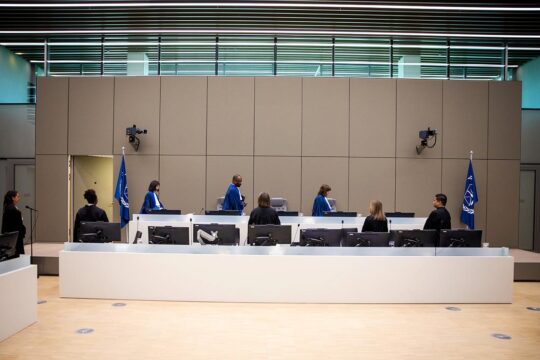The first round of voting in Mali's presidential election gave outgoing President Ibrahim Boubacar Keita a conclusive lead over his rival -- but unresolved anger and finger-pointing over the results have highlighted some of the country's divisions.
Eighteen of the 24 candidates in the election joined forces Monday to demand the resignation of the minister of territorial administration and decentralisation, Mohamed Ag Erlaf.
They accused him of being to blame for an "electoral robbery" and urged people in the capital Bamako to rally on Tuesday.
Keita won 41.42 percent of votes in the July 29 presidential poll in the sprawling west African nation, easily ahead of opposition leader Soumaila Cisse, in second place with 17.8 percent.
They will face each other in a runoff vote next Sunday.
Sources in Cisse's entourage on Sunday said they had filed a case at the Constitutional Court over alleged "ballot-box stuffing, breach of electoral law and irregularities".
Two other opposition candidates, businessman Aliou Boubacar Diallo and former prime minister Cheick Modibo Diarra, who came in third and fourth place, have also turned to the court.
In the north and centre of the country -- shaken by jihadist violence and lawlessness -- ethnic tension has been sharpened by the vote.
The northern town of Gao, along with Timbuktu and Kidal, were captured by the largely Tuareg Azawad liberation movement (MNLA) and jihadist rebels in an uprising in March 2012.
The Islamists took the ascendancy and started to impose strict sharia law in the territory known as Azawad, but French military ground and air forces intervened and routed the rebels in the first five months of 2013.
- Ballot-stuffing accusations -
But the insurgency remains undefeated, and lawlessness abounds.
"It's in the areas where there is no security that you hear that IBK has stolen votes. In those places, the heads of the polling stations took ballot boxes and filled them for IBK," said Abdoulmajid Agagrossi, an unemployed electrician of 23, referring to Keita by his initials.
"This is total fraud," businessman Mohammed Toure asserted in Gao while he drank tea with a group of friends.
"In one constituency, they had 9,772 votes for IBK and just one for Cisse -- but there were only 9,000 registered voters."
The institutions of state are largely absent in the region, and armed groups, mostly Tuaregs, who signed a 2015 peace agreement with the government, are taking part in security during the presidential election.
Some Gao residents charge that the presidential party cut a deal with the armed groups to rig the vote.
"You hear that everywhere in town," said an official with the UN mission MINUSMA, asking not to be named and unable to confirm any challenge to the vote results.
Last March, authorities imposed a week-long curfew throughout Gao following deadly clashes between ethnic Arabs and the Songhai community.
Alassane Maiga, a 45-year-old teacher from Gao, said that "ballot-stuffing in the nomad areas" was chronic.
And he has no doubt about the culprits: what he calls the "light-skinned ones" -- Tuareg and Arab peoples, traditionally roaming tribes of the Sahara, whom he also blames for violence, but cannot provide details.
More than 700 polling stations across the country were unable to open because of violent incidents.
The government released the results at national level, but "has no intention at all of publishing them in detail, constituency by constituency," a source close to the ministry told AFP, ignoring calls by the opposition and international observers for "transparency".
sab-sd/mrb/siu/nb/ri/ecl/jta


